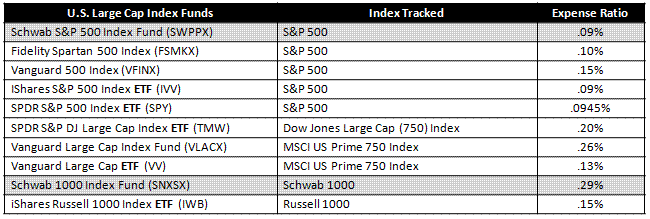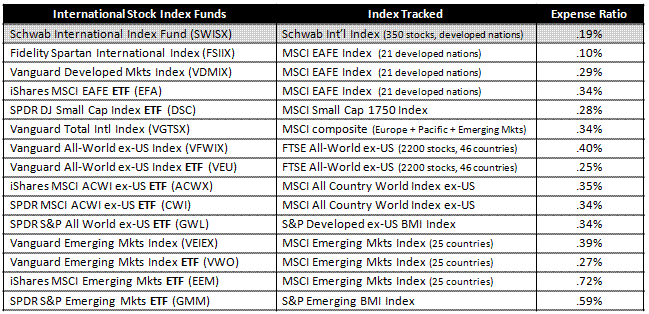Financial Planning Blog
 Index Fund Cost Comparison
Index Fund Cost Comparison
Last week Schwab made their line-up of passively managed stock index funds considerably more competitive by announcing lower management fees and combining share classes. Similar to Fidelity, Schwab offers only a limited selection of index funds, but the two companies can boast of the lowest management fees on these core stock holdings. Of course, lower expense ratios are critical for investors to maximize their share of market returns, but cost is not the only thing to consider. Effective tracking of the relevant index, tax efficiency, and transaction costs (which are largely influenced by where you hold your account) are also important considerations.
Some of you may not be familiar with the alternatives in broad based stock index funds available to the individual investor. Below is a comparison of some of the top choices of index mutual funds and exchange traded funds (ETFs) in three major market categories--U.S. large companies, U.S. small companies, and foreign companies. If you are looking to create a diversified stock portfolio that will enable you to achieve market returns in a simple, low cost fashion, these funds should be on your short list. (The Schwab funds with their new, low expense ratios are highlighted.)



Using passively managed index funds is obviously not the only strategy for investing. Indexing has many advantages, however, and has been enthusiastically adopted by many institutional and individual investors. These advantages will be discussed in future articles. In the meantime, listen to Charles Schwab when he says, "Buy index funds. It might not seem like much action, but it is the smartest thing to do."
Next page: Disclosures



